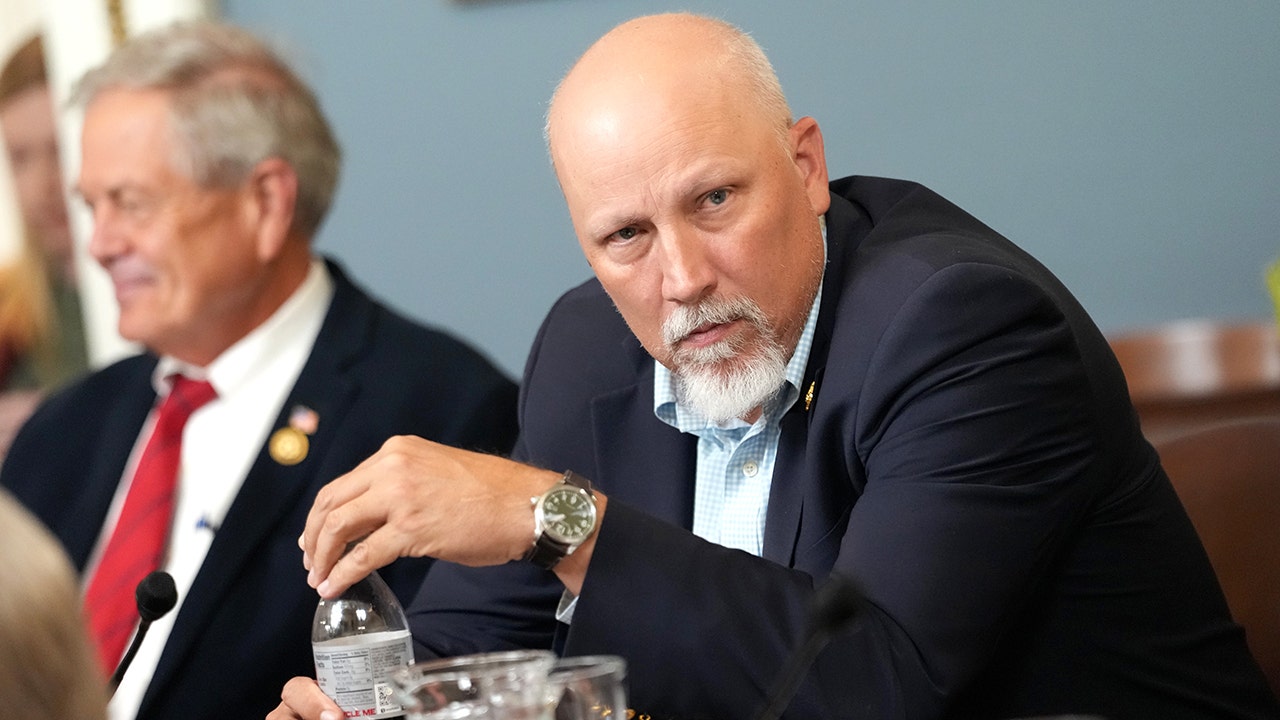In September 2024, a coalition of 20 state attorneys general filed an amicus brief in United States v. Skrmetti, the Supreme Court case that upheld Tennessee’s ban on pediatric gender medicine. The law, SB1, made it a crime to prescribe puberty blockers or cross-sex hormones to minors for the purpose of treating gender dysphoria, and the officials, all from blue states, described it as a stark departure from the norms of medical regulation, accusing Tennessee of second-guessing the judgment of health care professionals.
The officials objected, they said, because Tennessee’s law “bans care entirely, rather than merely regulating it.” Their brief continued, “SB1 prohibits an entire population group from accessing care with substantial benefits and limited evidence of risks—regardless of individual patient circumstances … Even when forms of treatment involve heightened medical risks, States rarely enact categorical bans.”
What the officials didn’t say was that, over the past decade, each of their states has banned a different gender-related treatment: talk therapy that helps kids struggling with gender dysphoria come to terms with their bodies rather than modifying them with hormones.
Or at least that’s how critics of conversion therapy bans see the laws, which prohibit efforts to change a patient’s “gender identity”—including through voluntary counseling—and are now being challenged before the Supreme Court. The case, Chiles v. Salazar, was brought by a Colorado therapist who says the state’s ban on conversion therapy violates her First Amendment rights by restricting what she can discuss with her patients. If the High Court agrees, it could void similar laws in over 20 states.
The shadow of Skrmetti hung over oral arguments in the case last week, with the liberal justices who had objected to Tennessee’s law suddenly sounding a lot like the conservatives who had voted to uphold it. At one point, Justice Ketanji Brown Jackson suggested Chiles v. Salazar was the “functional equivalent of Skrmetti,” insofar as both cases involved a controversial treatment—puberty blockers in Skrmetti, “conversion therapy” in Salazar—that states were seeking to proscribe.
LGBT activists have echoed that argument. “If they’re going to be consistent and fair and intellectually honest, Skrmetti should essentially decide this case for them,” Shannon Minter, the legal director of the National Center for LGBTQ Rights, said in an interview with Stat News. “The issues are almost completely identical, right?”
But unlike Tennessee’s law, the bans on conversion therapy don’t just target physical interventions. They target talk therapy—speech—that is perceived as denying a patient’s gender identity. And given the subjectivity of such perceptions, critics say these laws will make it difficult to explore the root causes of a patient’s gender dysphoria, which often co-occurs with other mental health issues and, in nearly 80 percent of children, resolves itself by puberty.
“Doctors should conduct thorough psychiatric evaluations before greenlighting a child’s social or physical transition,” said Erica Anderson, a former president of the United States Association of Transgender Health. “These bans will discourage doctors—particularly young, inexperienced doctors—from conducting such evaluations.”
Anderson, who is transgender herself, has helped hundreds of teens transition and opposes laws banning gender medicine for minors. At the same time, she has argued for tighter gatekeeping of puberty blockers and cross-sex hormones, sparring with transgender activists who say the drugs should be available to anyone who requests them. And though she does not try to “change” her patients’ gender identity, she worries conversion therapy bans will, in practice, make therapists skittish about pumping the brakes.
She also sees blue state bans on conversion therapy as the mirror image of red state bans on puberty blockers, symptoms of a dangerous tendency to politicize medicine at the cost of physicians’ autonomy.
“Red states should not be second-guessing doctors who prescribe puberty blockers and cross-sex hormones,” Anderson said. “But by the same token, blue states should not be second-guessing doctors who decline to affirm everyone’s gender identity on demand. Both are examples of state legislatures usurping the judgment of medical professionals.”
Stephen Levine, a psychiatrist who specializes in gender dysphoria, echoed Anderson’s analysis, likening conversion therapy bans to the anti-vaccine movement that has found a foothold in the White House.
“We’ve politicized medicine,” Levine said, “and the conversion therapy bans are a part of that.”
Conversion therapy originally referred to efforts to change the sexual orientation of gay people. Those efforts, which were discredited in the 1970s, involved the use of electroshock therapy and nausea-inducing drugs.
No such treatments are at issue in the Colorado case. The plaintiff, Kaley Chiles, a licensed counselor and practicing Christian, says she has been forced to turn away patients who would rather come to terms with their biological sex than undergo physical transition. “If clients are content with their sexual orientation or gender identity, Chiles does not ‘try to help [them] change their attractions, behavior, or identity’ but instead helps them develop other therapeutic goals,” her lawyers wrote in a court filing.
One question in the case is whether the state can dictate which of a patient’s therapeutic goals is legitimate. Another is whether the state is competent to determine when a therapist has crossed the line between helping patients explore their identity and actively seeking to shape it.
Like Anderson, Levine said psychiatrists should not try to change a patient’s gender identity. The problem, in his view, is that conversion therapy bans turn ordinary therapeutic practices—asking questions, exploring conflicts, discouraging impulsive decisions—into potential career-enders if a patient takes them the wrong way.
“If someone is depressed and self-harming and transgender, and you try to help them by asking what they dislike so much about themself, those very questions are referred to as conversion therapy,” Levine said, adding that adolescents tend to be overconfident about the permanence of their identity. “If they want to live this way, it’s ok, but they need to be old enough to understand what the issues are.”
A related concern is that the bans will discourage doctors from addressing underlying mental health problems that can cause gender dysphoria. “If these possibilities are ignored,” a report by the Department of Health and Human Services warned, “medical and surgical interventions may be recommended as the obvious treatment.”
Most conversion therapy bans include a carve-out for “identity exploration,” a clause some experts have cited to argue that the laws do not prevent therapists from exploring comorbid mental health issues, such as anxiety and depression, that may be contributing to gender dysphoria. “Explorative therapy is not banned under Colorado’s law,” Jack Turban, a psychiatrist at the University of California, San Francisco, wrote in an amicus brief for Chiles v. Salazar. “Conversion efforts and exploratory psychotherapy are distinct, mutually exclusive practices.”
But others say that distinction is unlikely to blunt the laws’ chilling effects. Leor Sapir, a senior fellow at the Manhattan Institute who studies gender medicine, noted transgender groups like GLAAD and the Trevor Project have argued that exploratory therapy is itself conversion therapy, raising questions about how medical boards will interpret the bans.
“What the laws say on paper is not the same as how they are understood and used in practice,” Sapir told the Washington Free Beacon. “If the industry itself exploits these laws to enforce an ‘affirming’ orthodoxy on its members without accountability, what good is the carve-out?”
Sapir added that he knows therapists who support gender-affirming care but have been hit with ethics complaints anyway because a patient was taken aback by their questions.
“Therapists may not know how exactly to do exploration without their patients perceiving it as ‘questioning my identity,'” Sapir said. “I’ve seen this first-hand, having helped therapists, including ones who actually do endorse gender-affirming care, navigate complaints filed against them to their professional boards.”
That concern is shared by Tamara Pietzke, a therapist in Washington State who has spent the last year and a half under investigation by the state’s health department.
As a counselor at Multicare, Pietzke had been reluctant to prescribe hormones to some of her patients, including a teenage girl who identified as a “wounded male dog” and described herself as “xenogender.” After she wrote about her experience for the Free Press, the Washington Department of Health told Pietzke that it was investigating “multiple complaints” related to the article. In a letter obtained by the Free Beacon, the department demanded information about her “resistance to affirm[ing] transgender patients’ genders” and even implied she could lose her license for speaking about gender dysphoria as a mental disorder—despite its inclusion in the DSM-5.
“You discussed a transgender patient in the article not using their preferred pronouns and continued to discuss gender dysphoria as a mental illness,” the letter read.
Though the department did not use the words “conversion therapy,” Pietzke says her story illustrates how the bans could be weaponized against doctors who attempt to minimize or delay the use of gender medicine. “Even if there is that caveat about exploratory therapy, people are still penalized just for trying to be therapists,” Pietzke told the Free Beacon. “If someone comes in, you have to fast-track them toward medicalization if that’s what they want.”
Read the full article here







